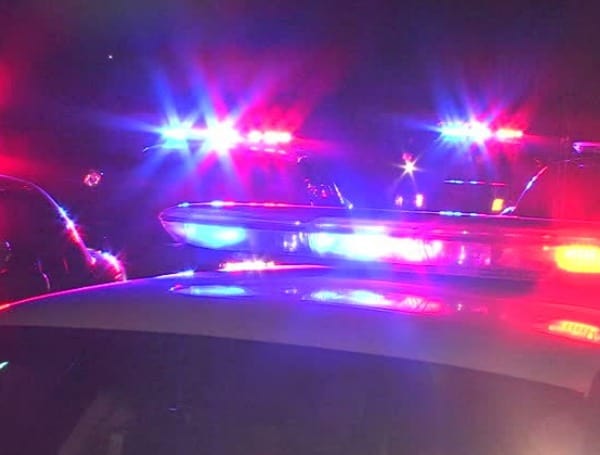
Law enforcement frequently uses radar traps to monitor and enforce speed limits on roads and highways. While this technology helps improve safety and reduce accidents, it can also lead to errors in traffic enforcement. It’s important for drivers to understand how radar traps work and what legal options they have if caught by one, to avoid unfair fines or penalties.
This analysis will provide insights from a speeding ticket lawyer to help you understand radar technology, common defenses against radar-based speeding tickets, your rights during a traffic stop, and the attorney’s role in handling your case. It will also share practical tips for avoiding speeding tickets and making informed decisions on the road.
The Mechanics of Radar Traps
Police often use radar traps to enforce speed limits and keep roads safe. Radar works by sending out radio waves that bounce off moving cars and return to the radar device. The device calculates the car’s speed based on changes in the waves’ frequency, known as the Doppler effect. Different types of radar include stationary guns used from patrol cars and handheld devices operated by officers on the side of the road.
These tools can track a single car even in heavy traffic, though their accuracy can be affected by things like weather or improper calibration. Officers typically set up radar traps in areas where speeding is common to discourage unsafe driving. However, questions about radar accuracy sometimes lead to disputes over speeding tickets. Understanding how radar works and the procedures for using it helps drivers better grasp its role in traffic enforcement.
Common Legal Defenses Against Radar-Based Speeding Tickets
Fighting a radar-based speeding ticket can feel intimidating, but there are several solid defenses you can use. Lawyers recommend carefully reviewing the radar device’s calibration and maintenance records since any mistakes could weaken the ticket.
Also, factors like weather or interference from nearby electronics can impact radar accuracy and may help in your defense. You can challenge whether the officer had a clear view when measuring your speed, and even question their training or if they followed proper procedures during the stop. Each of these points can reveal problems with the ticket and offer ways to fight it.
Your Rights During a Traffic Stop
Knowing what to do during a traffic stop can help protect your rights and make the interaction go smoothly. When you see flashing lights, pull over safely to a well-lit area if possible. Roll down your window, turn off the engine, and keep your hands on the steering wheel. Wait for the officer to ask for your license, registration, and insurance before reaching for them. Stay calm and polite, even if you plan to challenge the ticket later.
You have the right to remain silent beyond providing basic information, and you don’t need to agree to a vehicle search unless the officer has probable cause. Pay attention to the details of the stop, and if needed, discreetly record the encounter with your phone. How you handle the situation can affect any future legal actions, so it’s important to stay informed and careful.
The Job of a Speeding Ticket Attorney
Hiring a speeding ticket attorney can make a big difference when dealing with a speeding violation. These attorneys specialize in traffic laws and help you fight your ticket. They will thoroughly review your case, looking at details like the radar equipment and how the officer handled the situation. An attorney may find mistakes in the officer’s actions or errors in the radar device, which could lead to the charges being reduced or dropped.
They handle all the legal steps, from paperwork to court representation, improving your chances of a better outcome. Their expertise can also help reduce penalties, protect your driving record, and prevent insurance rate increases. In short, a speeding ticket attorney simplifies the legal process and makes sure your rights are protected.
Tips for Avoiding Speeding Tickets
To avoid speeding tickets, prevention is key. Follow the posted speed limits and be aware of speed changes, especially in areas like highways and school zones where radar traps are common. A good radar detector might help, but they aren’t perfect and can be illegal in some states.
Keep your speed steady with the flow of traffic since sudden changes can attract attention. Make sure your speedometer is accurate and adjust your driving habits as needed. Staying updated on local traffic laws can also help. Defensive driving, like keeping a safe distance and anticipating stops, can lower your chances of speeding—both on purpose and by accident. In the end, the best way to avoid a ticket is not to give a reason for one.
Understanding how radar traps work and knowing your rights during a traffic stop are essential for avoiding unnecessary penalties. If you receive a radar-based speeding ticket, it’s important to explore your legal options, including common defenses such as questioning the radar’s accuracy or the officer’s procedure. Consulting a speeding ticket attorney can greatly improve your chances of having the charges reduced or dismissed, protecting your driving record and preventing higher insurance rates. By staying informed, driving carefully, and following speed limits, you can minimize your risk of getting a speeding ticket.
Please make a small donation to the Tampa Free Press to help sustain independent journalism. Your contribution enables us to continue delivering high-quality, local, and national news coverage.
Android Users: Download our free app to stay up-to-date on the latest news.
Connect with us: Follow the Tampa Free Press on Facebook and Twitter for breaking news and updates.
Sign up: Subscribe to our free newsletter for a curated selection of top stories delivered straight to your inbox.
